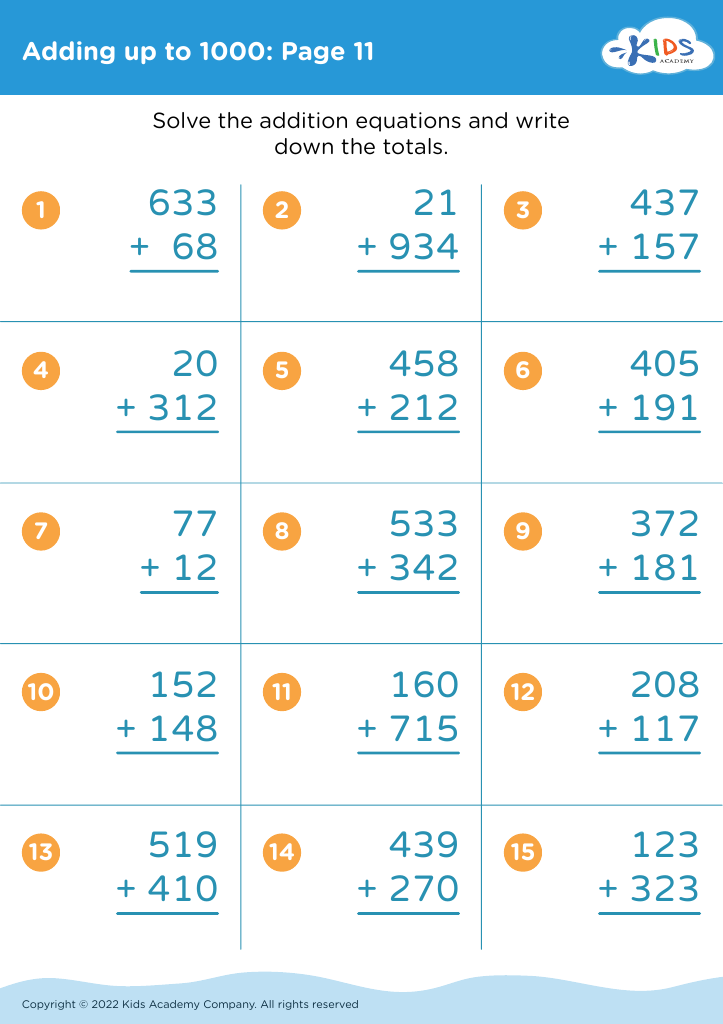Enhance problem-solving Addition Worksheets for Ages 4-7
3 filtered results
-
From - To
Nurture early mathematical skills with our Enhance Problem-Solving Addition Worksheets, designed for children ages 4-7. These engaging worksheets effectively combine fun and learning to boost addition proficiency and critical thinking. Tailored to young learners, each activity progresses in difficulty, aiding in the development of logical reasoning, pattern recognition, and arithmetic fundamentals. Whether used in the classroom or at home, our worksheets provide a dynamic way for children to practice and master addition while building a strong foundation for future math success. Encourage your child’s love for learning with our expertly crafted addition worksheets collection!
Enhancing problem-solving skills through addition for children aged 4-7 is crucial as it lays the groundwork for their future academic success and overall cognitive development. At this early stage, children are rapidly absorbing information and developing foundational skills that will support more complex problem-solving in higher grades.
Introducing addition as a problem-solving activity helps children develop mathematical skills in a fun and engaging manner. It encourages critical thinking as they learn to understand and create patterns, recognize numbers, and achieve a sense of numerical relationship. This early exposure to arithmetic bolsters their ability to comprehend more advanced mathematical concepts later on.
Moreover, solving addition problems exercises cognitive abilities such as memory, attention, and reasoning. These abilities are essential, not just for mathematics, but for all areas of learning and everyday life. Furthermore, success in solving addition problems can build confidence and foster a positive attitude towards math.
Social skills also benefit from collaborative problem-solving activities, as children learn to work in groups, share ideas, and approach challenges collectively. Therefore, parents and teachers should focus on activities that enhance problem-solving and addition skills, providing young learners with tools that are crucial for academic achievements and life skills.




















